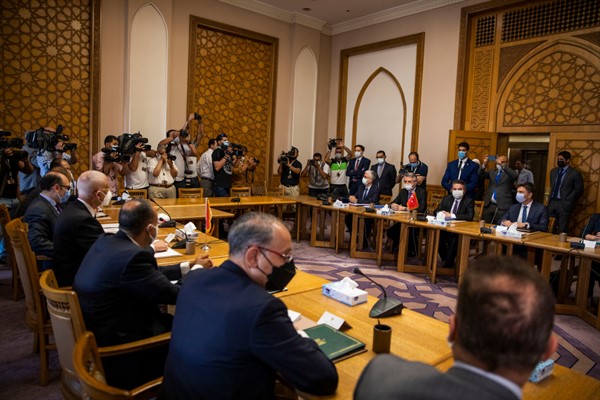Editor’s Note: This is the web version of our subscriber-only weekly newsletter, Middle East Memo, which takes a look at what’s happening, what’s being said and what’s on the horizon in the Middle East. Subscribe to receive it by email every Monday. If you’re already a subscriber, adjust your newsletter settings to receive it.
In 2014, Recep Tayyip Erdogan, at the time Turkey’s prime minister, condemned Egyptian President Abdel Fattah el-Sisi as a “tyrant.” Last week, Erdogan, now president, sent a high-level diplomatic delegation to Cairo for discussions of bilateral relations and regional affairs, the first such official talks since 2013. The multi-day talks were led by both sides’ deputy foreign ministers and represented the most concrete step the two countries have taken to date to repair their damaged relationship.
The Egypt-Turkey talks are among a series of diplomatic developments—including direct Saudi-Iran talks, Turkish engagement with Gulf countries, the resumption of U.S. diplomacy on the Iranian nuclear agreement, the approval of a coalition government in Libya and the ending of the Saudi-led blockade of Qatar—that suggests the Middle East may have an opportunity to step back from the interventionism and conflict that have come to characterize regional competition in the decade following the Arab uprisings of 2011. None of these developments yet represents durable and sustainable change, but taken together they perhaps are reflective of a soberer mindset, cognizant of the costs of overreach. They also come at a time when a new U.S. administration has signaled a shift in both its priorities in and its approach to the Middle East.

